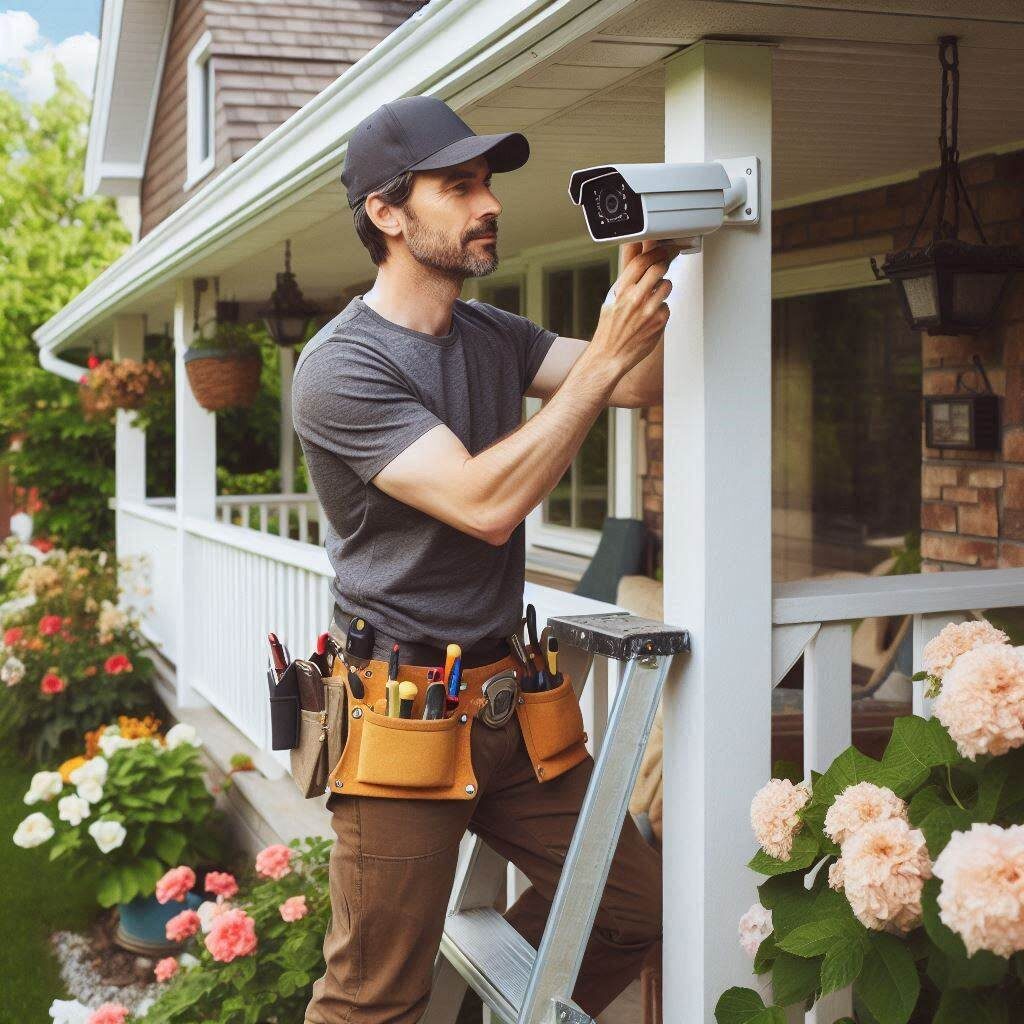In today’s world, security is a top priority for homeowners. With rising concerns about break-ins and theft, investing in a home alarm system has become one of the most common ways to protect both property and loved ones. Home alarm systems offer peace of mind by deterring criminals and providing an added layer of protection. However, while these systems are an excellent security measure, they don’t necessarily mean complete protection against every threat.
Let’s explore the benefits of a home alarm system and clarify what it doesn’t guarantee.
The Benefits of a Home Alarm System
Deterrence of Criminal Activity – One of the most significant advantages of a home alarm system is its ability to act as a deterrent. Most burglars are opportunistic and prefer easy targets. When they see a security system in place, the risk of being caught or confronted increases, making them more likely to look for another, less secure property. Studies show that homes with visible alarm systems are less likely to be targeted by criminals.
Immediate Alerts – Home alarm systems are equipped with sensors that detect unauthorized entry, smoke, or carbon monoxide. The moment a breach is detected, the system alerts the homeowner, the monitoring service, or the local authorities. This swift notification can prevent or minimize damage by ensuring immediate action is taken.
Remote Monitoring and Control – Many modern alarm systems come with mobile apps that allow homeowners to monitor their property remotely. This means you can check in on your home while on vacation or at work, receiving real-time notifications or controlling the system from your smartphone or tablet. This flexibility adds convenience and additional peace of mind.
Integrated Protection for Property and Family – Alarm systems can be customized with features that offer protection not only against intruders but also fire, flooding, or medical emergencies. Some systems can even detect changes in temperature that may signal a fire or freezing pipes, offering protection beyond the typical security measures.
Potential Insurance Benefits – Many home insurance companies offer discounts to homeowners who have an alarm system installed, as these systems reduce the risk of theft or damage. This can lead to long-term savings on your insurance premiums, offsetting the initial cost of the system.
What Home Alarm Systems Don’t Necessarily Mean
Total Protection Against All Threats – While home alarm systems are excellent at protecting against burglaries and certain emergencies, they are not foolproof. They can’t guarantee protection against every type of threat. For example, a well-trained burglar may bypass the system, or an intruder may enter through an area of the home that is not covered by sensors. Additionally, alarm systems cannot prevent natural disasters such as floods, earthquakes, or hurricanes, unless specifically equipped with sensors to detect those events.
Prevention of Human Error – An alarm system relies on proper setup, regular maintenance, and correct usage. If a homeowner forgets to arm the system, fails to update the security codes, or neglects to replace batteries or malfunctioning components, the system may not function as intended. Additionally, false alarms, which can be caused by simple mistakes or equipment malfunctions, are common and can result in wasted resources or fines from local authorities.
Complete Privacy – While home alarm systems provide a great layer of protection, some systems, especially those with video surveillance or smart-home capabilities, can raise privacy concerns. Monitoring services may have access to footage or data about when you come and go, which could potentially be misused if not managed securely. Homeowners should ensure that their systems are properly secured with strong passwords and encryption to avoid privacy breaches.
A False Sense of Security – Just because your home is equipped with an alarm system doesn’t mean you’re completely safe. A security system is only as good as the level of vigilance it encourages. Relying too heavily on the alarm system without following other safety measures—such as locking doors, installing motion sensor lights, and securing windows—can give you a false sense of security. A layered approach to home security, including awareness and precaution, is always more effective than relying on one solution alone.
Limited Protection Without Monitoring – Some alarm systems are self-monitored, meaning homeowners receive alerts when the system is triggered but must take action themselves. While this can work for tech-savvy homeowners, it doesn’t offer the same level of protection as professionally monitored systems. Without a monitoring service to contact emergency responders in case of a break-in, fire, or other critical event, there may be delays in responding to threats.
Conclusion: A Smart Investment, But Not a Guarantee
A home alarm system is an important investment for any homeowner looking to enhance their property’s security and protect their family. It offers many advantages, from deterring burglars to providing real-time alerts in case of emergencies. However, it’s important to remember that no alarm system can guarantee absolute protection from all potential risks.
To maximize the effectiveness of your security system, it’s essential to incorporate it into a comprehensive security plan. This includes routine maintenance of the system, keeping entry points secure, using smart practices like lighting and locking doors, and understanding the limitations of the system. When paired with other security measures, your alarm system can be an excellent tool to safeguard your home, but it’s never a substitute for remaining vigilant and prepared for any situation.



